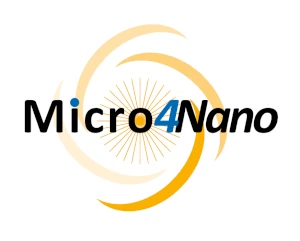Polycarbonate (PC) Molding Microfluidics Setup
From PDMS to highly versatile and performant Polycarbonate PC
Fast process
Fabricate Polycarbonate chips in only 1 hour
No need for a clean room
Perform the whole microfabrication process outside of a clean room
High impact strength
Get chips that are resistant to high pressures and mechanical stresses
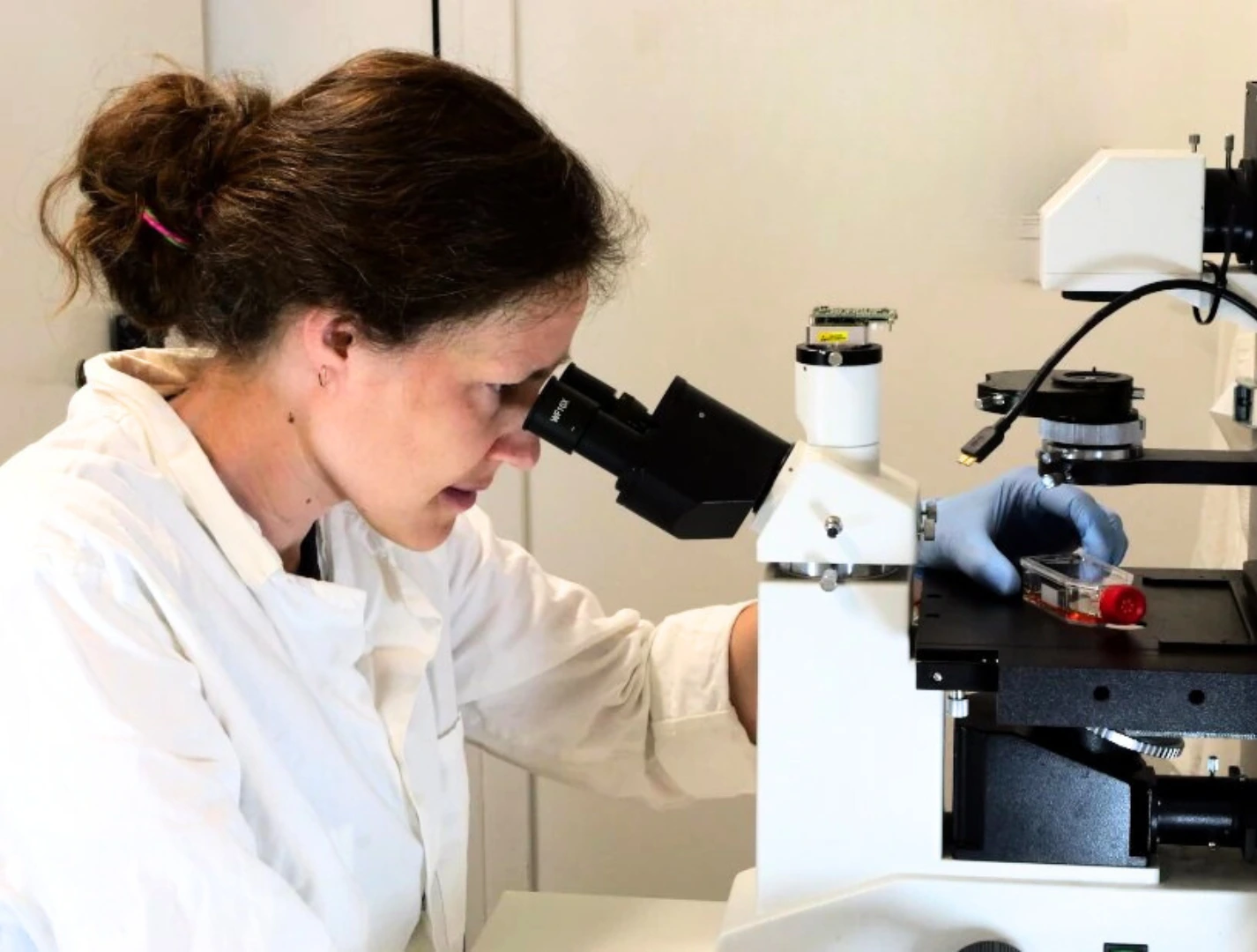
Need a microfluidic SME partner for your Horizon Europe project?
Polycarbonate modling microfluidics setup
PDMS chip microfabrication
In our molding setup, the microfabrication of PDMS chips is performed outside of a clean room. Initially, PDMS is mixed with a curing agent and degassed in a desiccator. Then, the elastomer is poured onto a mold and cured in a conventional oven. Following curing, the chips are demolded, accurately cut, and inlet perforations are created using biopsy punchers. Lastly, the PDMS is firmly fixed to a glass slide following its treatment in a plasma cleaner.

However, due to PDMS limited chemical compatibility, high gas permeability, and low throughput, researchers started looking for replacement materials with better properties, such as thermoplastics.
Switching to Polycarbonate (PC) molding
Polycarbonate (PC) is an optically transparent material, allowing for easy visualization and monitoring of fluids within microfluidic channels. In addition, it’s a durable and rigid thermoplastic material with high mechanical strength. Notably, this material is known for its excellent wide-range chemical resistance, biocompatibility, and commercial availability, which makes it adapted for mass manufacturing. Furthermore, PC is thermally stable, which confers resistance to elevated temperatures during fabrication processes and experimental operations on the fabricated microfluidic chips.
Overall, the combination of transparency, mechanical strength, chemical resistance, thermal stability, biocompatibility, and commercial availability makes polycarbonate a versatile and attractive material for fabricating microfluidic chips.
Polycarbonate microfabrication follows the same steps as thermoplastic chip microfabrication, and both can be performed outside of a clean room.
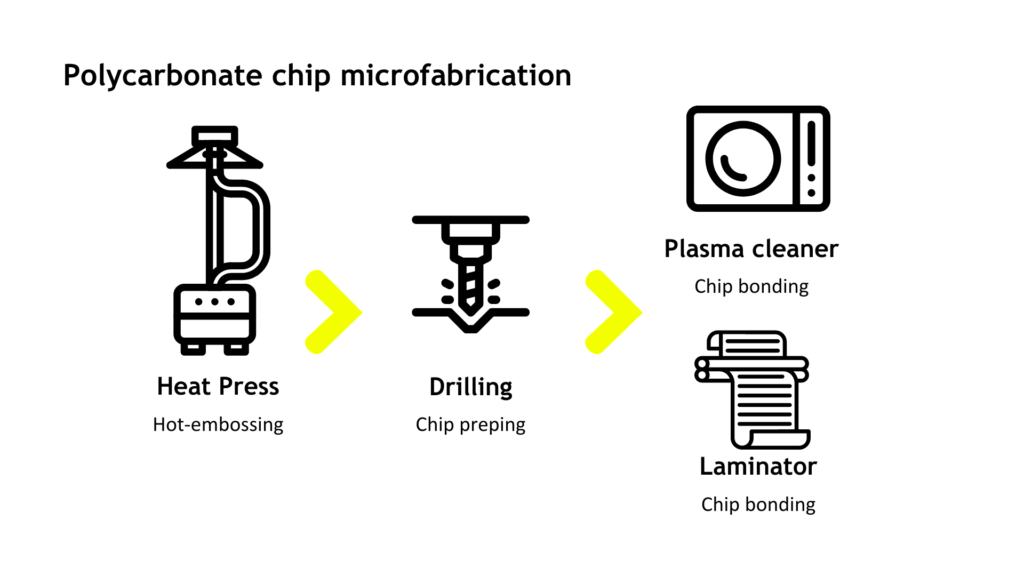
By integrating our recommended heat press and laminator into your workflow and adhering to our guidelines, you can seamlessly transition from PDMS microfabrication to PC material molding setup.
Your PDMS microfabrication process is different, and you don’t have all the listed equipment? Don’t worry; we’ve got you covered! We can provide you with all the necessary pieces and consumables; just drop us a line!
We recently published a review about the diverse materials and innovative fabrication and molding techniques used in microfluidic chip design.
Compatibility and Applications
The PC molding setup can also be used with:
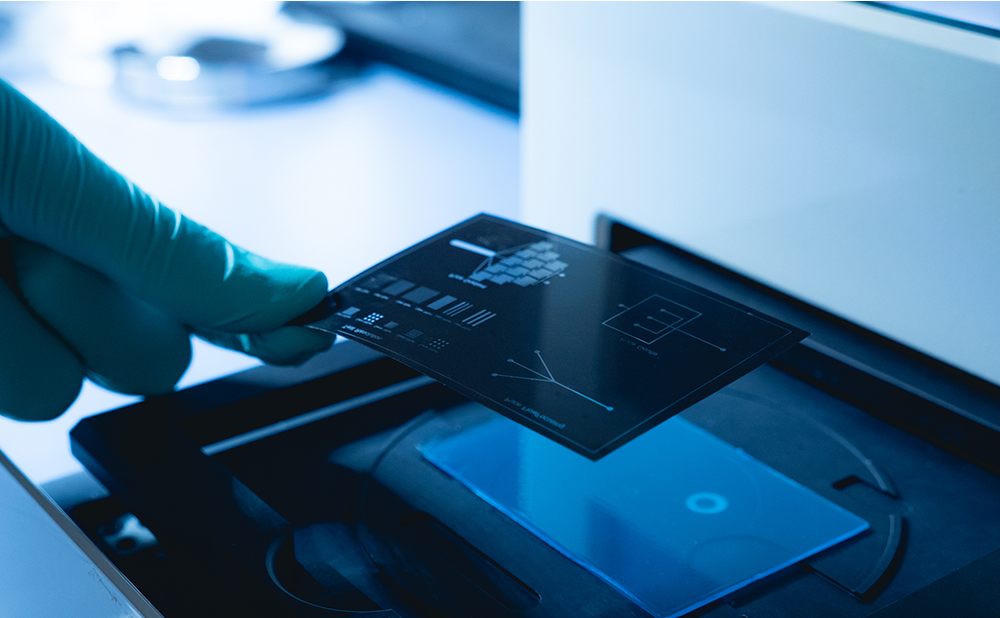
PMMA device station
From mold development to high-resolution PMMA chip fabrication
✓ Fast process
✓ Multiple applications
✓ Simple and innovative setup
PMMA
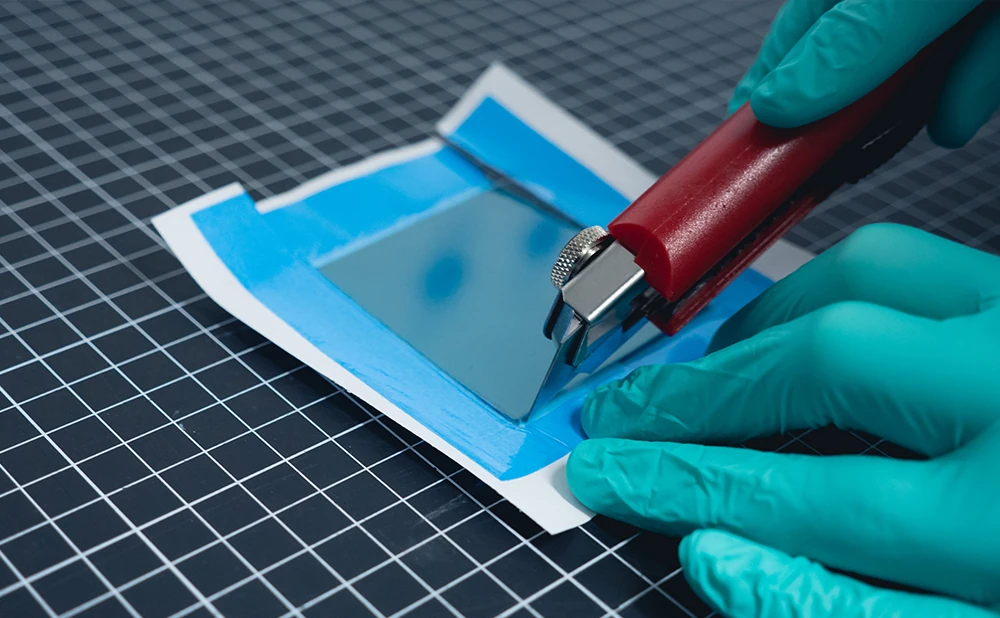
Polystyrene (PS) molding microfluidics setup
From PDMS to highly versatile and transparent Polystyrene PS
✓ Fast process
✓ No need for a clean room
✓ High versatility
Polystyrene
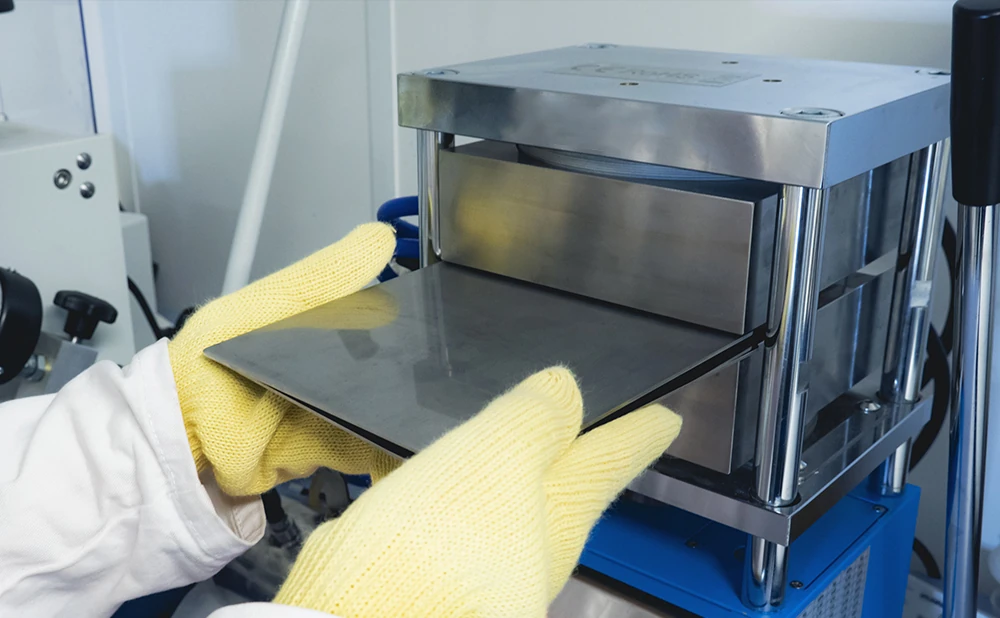
COC polymer molding microfluidics setup
From PDMS to low-impurity high-performance COC polymer
✓ Fast process
✓ No need for a clean room
✓ Adaptable to your needs
COC
And many more!
Microfluidic chips produced with PC molding can be employed in:
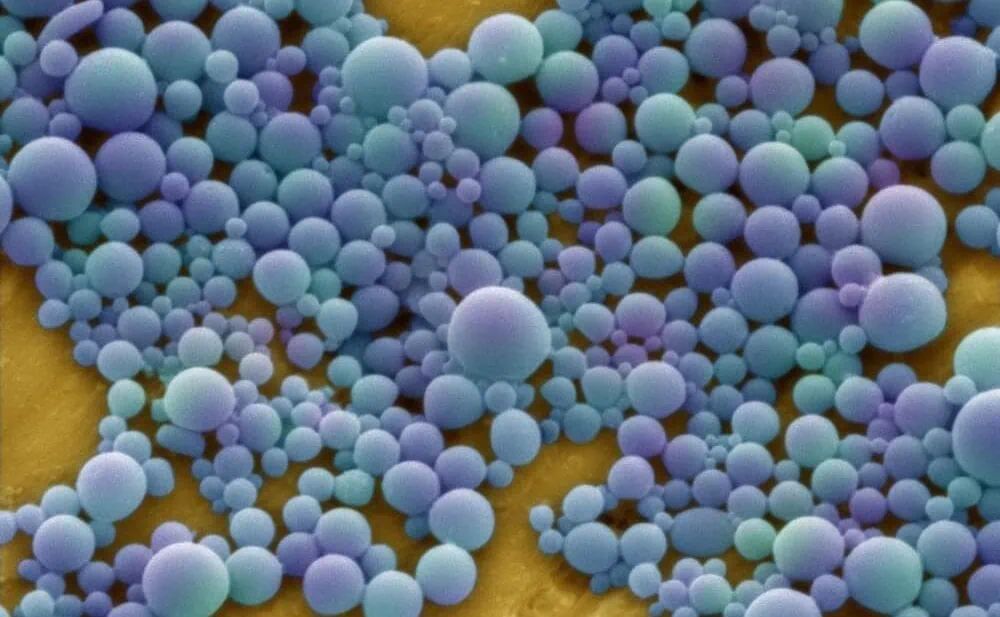
Microfluidics nanomaterial synthesis pack
Microfluidics for production of nanomaterials using sheath flow focusing
✓ Efficient synthesis. ofnanomaterials
✓ Easy microfluidic system implementation
✓ Biomedical applications
Lab-on-a-chip applications (e.g. nanomaterial synthesis)
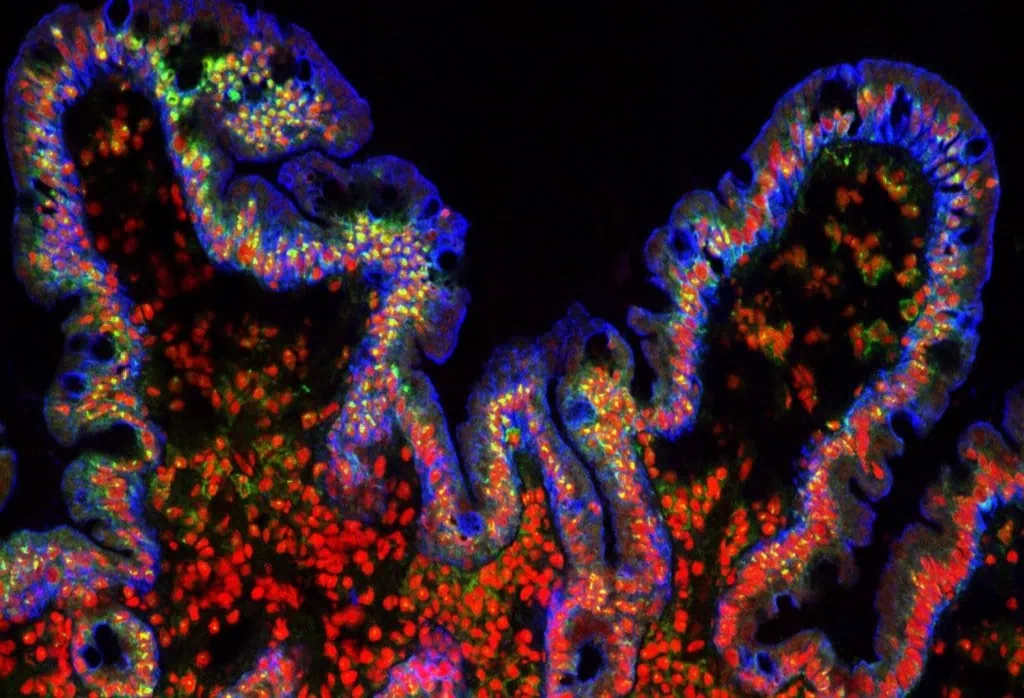
Gut-on-a-chip pack
Intestinal cells coculture under flow, mimicking the gut physiology
✓ All microfluidic pieces included, quick and easy assembly
✓ Dynamic culture conditions
✓ Advanced in viro/ex vivo
Gut-on-chip
Applications requiring specific-chip design and chemical inertia
And many more!
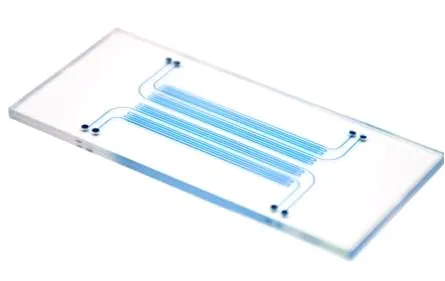
Technical specifications
The polycarbonate (PC) molding microfluidic setup comprises:
Heat press with double heating plate
| Components | Specifications |
|---|---|
| Dimensions | 420*550*680mm |
| Max temperature | 300 °C |
| Pressure range | 0-25 tons |
Laminator
| Components | Specifications |
|---|---|
| Dimensions | 270*545*130 mm (L x w x h) |
| Max laminated width | 335 mm |
| Max laminated thickness | 35 mm |
| Max temperature | 140 °C |
Options: Drilling machine
Consumables: Polycarbonate sheets
Frequently asked questions
Does the process also involve mold fabrication?
Currently, the polycarbonate (PC) molding microfluidic setup focuses on the chip fabrication and bonding from a pre-existing mold. However, we do have expertise to advise you in how to make your own molds.
What is the resolution of the Polycarbonate microfluidic devices?
Resolutions as low as 15 µm (channel width) for an aspect ratio of 2:1 can be achieved.
What maximum pressure can the devices withstand?
Based on internal testing, up to 3.5 bar.
What material can I use to close the chip?
The chip can be closed with a thermoplastic slide, a microscope glass slide or a microscopy-compatible polymer slide.
Is this process compatible with microscopy/reversed microscopy?
Polycarbonate is optically transparent and well-adapted to microscopy.



